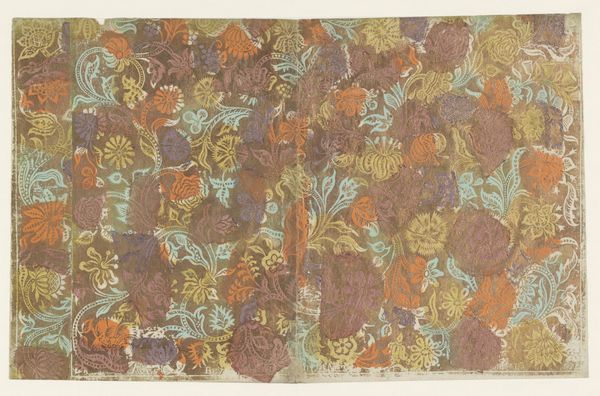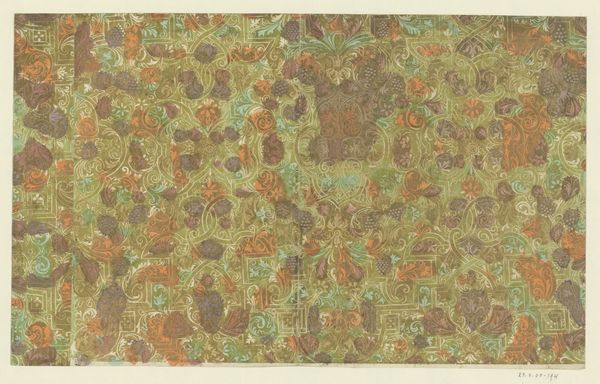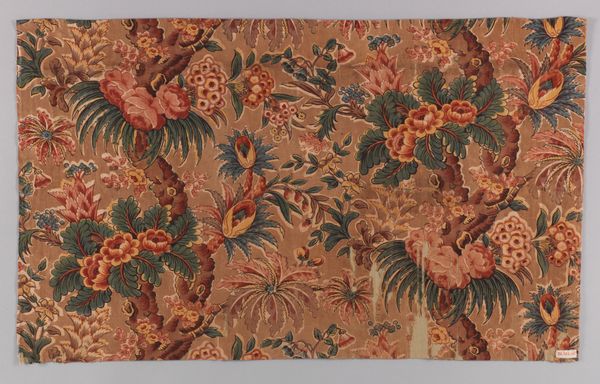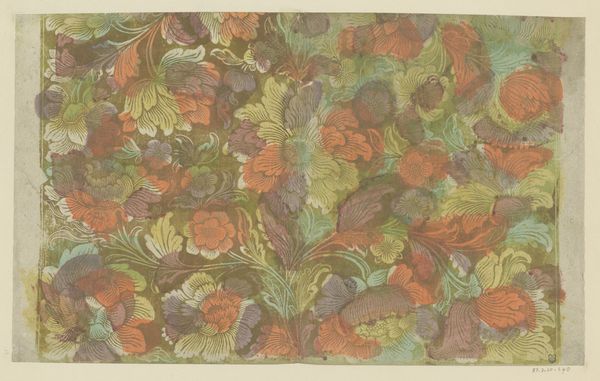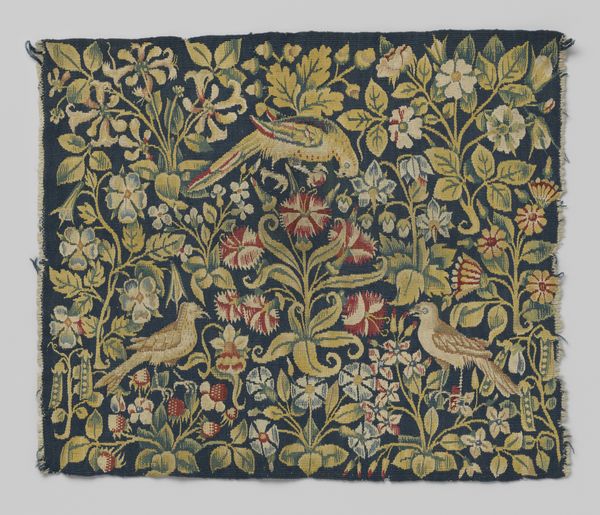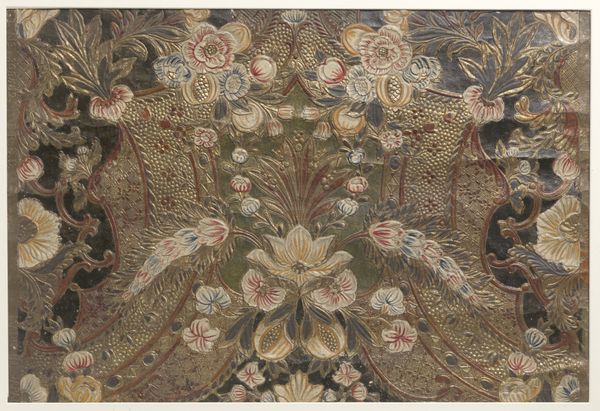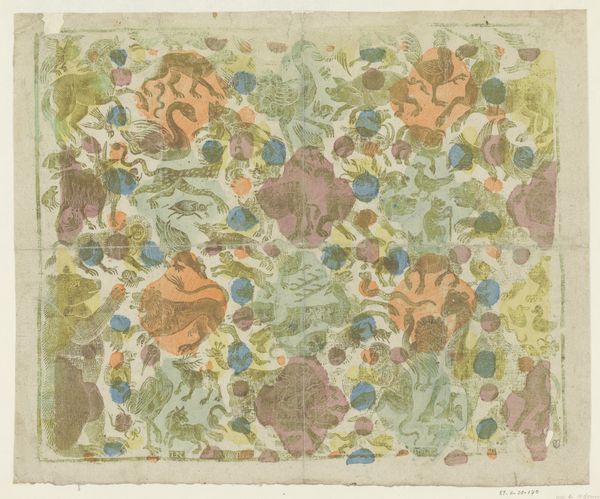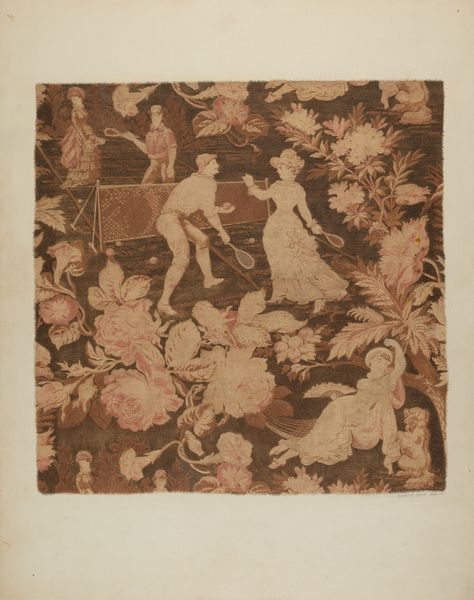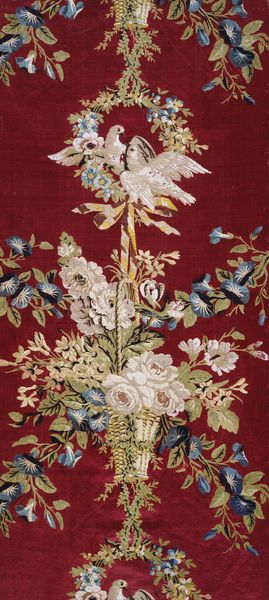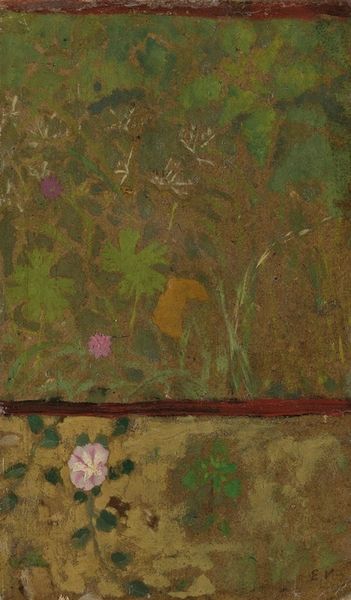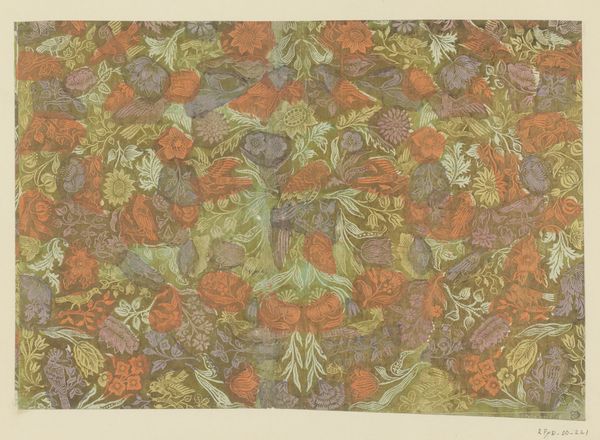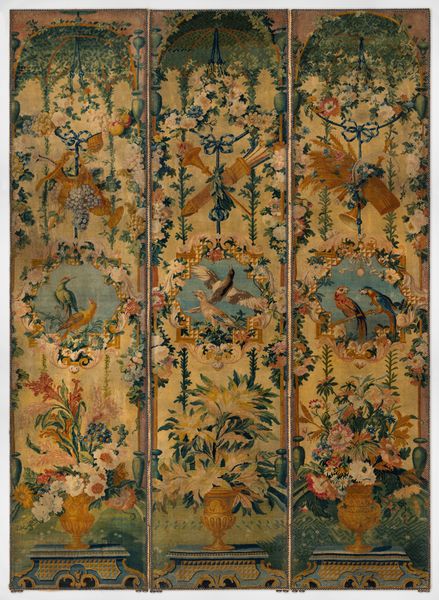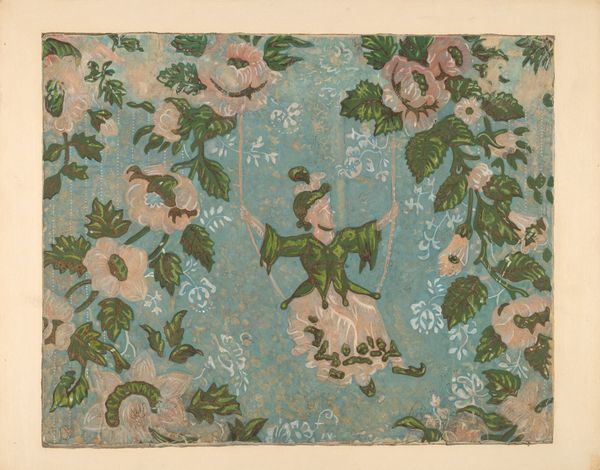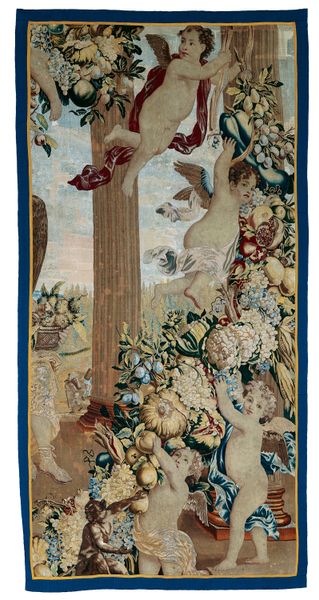
Large-Leaf Verdure Tapestry Fragment with Birds c. 16th century
0:00
0:00
silk, textile, wool
#
silk
#
landscape
#
textile
#
wool
#
11_renaissance
Dimensions: 91 x 154 in. (231.1 x 391.16 cm)
Copyright: Public Domain
This Large-Leaf Verdure Tapestry Fragment with Birds was likely made in the 16th or 17th century by an anonymous artist, using wool and silk. The fragment offers us a window into the complex social dynamics of the elite, for whom these tapestries were made. We can consider how verdure tapestries, with their dense imagery of nature, served to reinforce a sense of cultivated dominion over the natural world. Within this fragment, the lush foliage and exotic birds evoke a sense of paradise, yet this idealized vision often obscured the realities of labor and resource extraction that made such luxury possible. Imagine the hands of the weavers, likely working in workshops, carefully interlacing each thread to create this intricate scene. Did they see themselves reflected in the imagery they produced? These tapestries functioned as status symbols, adorning the walls of castles and grand houses, quietly reinforcing hierarchies of power and prestige. Today, the fragment prompts us to reflect on our own relationship with nature, and how our desires for beauty and comfort are intertwined with questions of social and environmental justice.
Comments
minneapolisinstituteofart about 2 years ago
⋮
The term verdure—which means “greenery” in both French and English—is used for tapestries covered with a design of large leaves, often with flowers and, in higher-quality examples, birds and animals. Such all-over patterning was easily adapted to tapestries of any size. It did not require the precise delineation and complex shading needed for human figures, so weaving could progress relatively rapidly. As a result, verdures were available to a wide range of buyers, including small landowners and merchants as well as nobles and royalty.
Join the conversation
Join millions of artists and users on Artera today and experience the ultimate creative platform.
